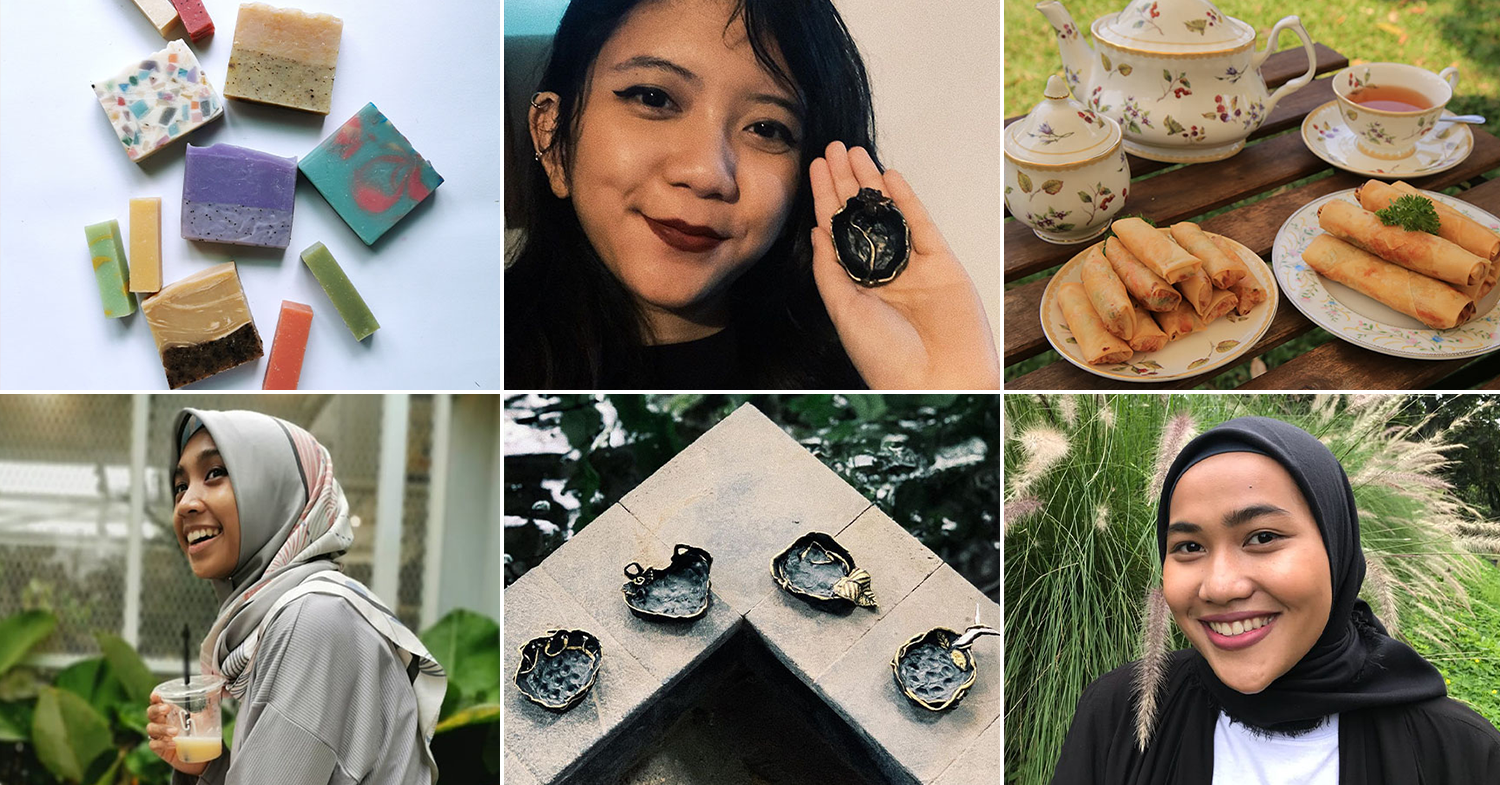Indonesian women running home businesses
Many people have hobbies that we take a lot of pride in – be it baking, drawing, or playing music. As much as we love doing these activities for ourselves, the thought of turning it into a small business might cross our minds every once in a while.
Starting a home business is no easy feat, but it might be worth considering especially if you’re looking for a new sideline in this pandemic, or if you want to earn an income from something you love doing.
To gain insight into the challenges and triumphs of running a home business, we interviewed three Indonesian women running home businesses – Akiko Nada Atsmara, who handcrafts cute soap bars under her brand Akarui, experimental musician Dea Karina, who creates small clay items labeled Mage Pots, and Charmila Nurbintoro, who manages Ku-dap snack shop from her own kitchen – who generously shared the inspiration behind their enterprises and even spilled some insider tips that might come in handy for budding entrepreneurs.
1. Akarui by Akiko Nada Atsmara – handcrafted soaps using organic ingredients
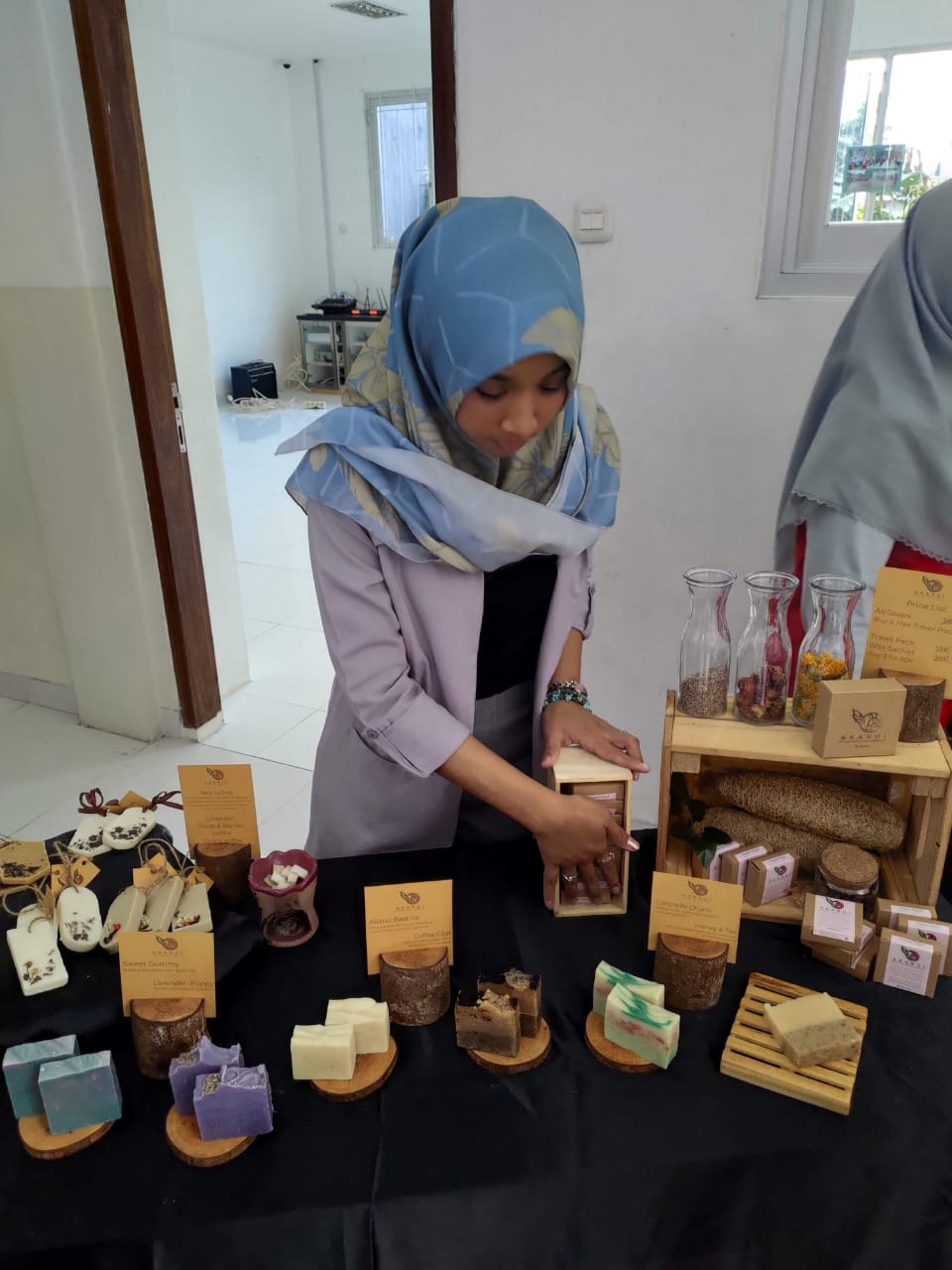
Image credit: Akiko Nada Atsmara
Akiko Nada Atsmara had always wanted to start her own business, but like many university graduates, she initially focused on building a career. During that time, however, the itch to pursue her dream became harder to ignore.
Though Akiko didn’t have a concrete plan just yet, online creators and shop owners who posted cute items for sale on the Internet encouraged her to think of the many home business opportunities that were available.
It wasn’t until 2017, three years into Akiko’s tumultuous career journey, that she discovered her love for soap-making. Being a crafty person, she found that soap-making was a hobby that she wanted to become skillful at.
The process became so addictive that Akiko ended up making too much soap to use by herself, so she started sharing them with family and friends. To Akiko’s pleasant surprise, they all gave positive feedback – giving her the assurance she needed to seriously consider kickstarting her home business.
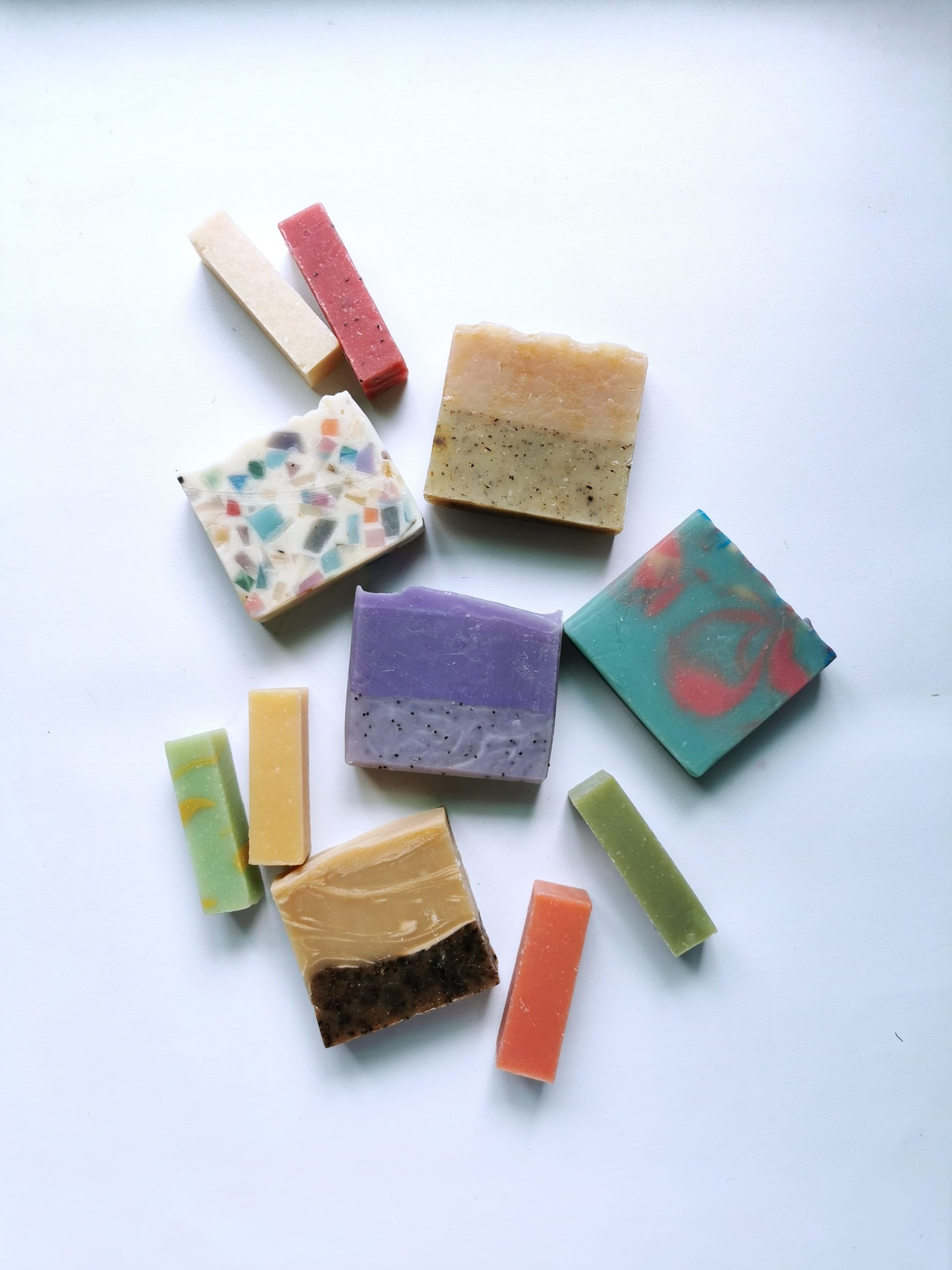
A variety of soap bars available at Akarui
Image credit: Akiko Nada Atsmara
Akarui, Akiko’s artisanal soap shop, came to birth in the same year. As someone who has extremely sensitive skin, she doesn’t think of soap-making as merely a business idea – it’s also about the importance of self-care. To provide organic soap options for others suffering from similar skin problems, she uses eco-friendly natural ingredients, and believes Akarui has the potential to be financially and environmentally sustainable in the long run.
“Having your own business … as your own boss comes with all the liberation, but … challenges as well,” shared Akiko. “It is important to always get feedback from others since your market might not [understand] the …. ideas you are trying to deliver as [well as] you do.”
The COVID-19 pandemic has also had a huge impact on Akarui. Social restrictions mean that Akiko hasn’t been able to hold workshops as well as face-to-face meetings with clients, which is a key step in creating customized products. Additionally, inquiries for wedding souvenirs and baby shower packages have gone down drastically because people can’t hold events.
As if those factors weren’t already a huge blow, Akiko also has had to deal with the sudden surge in the prices of disinfectants and gloves needed to keep herself safe and her tools and workstation sterile.
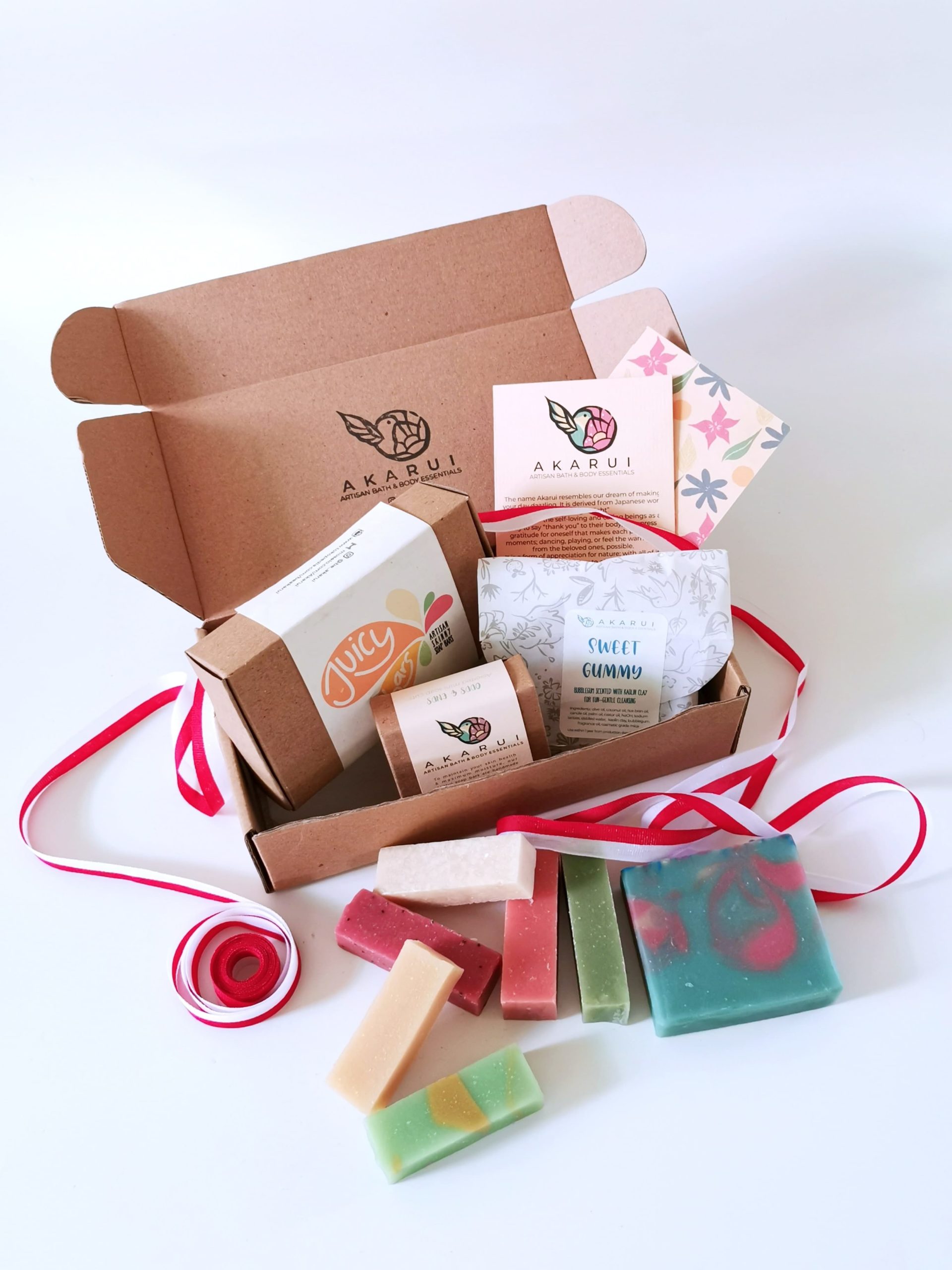
Akarui’s limited-edition Sweet Summer bundle
Image credit: Akiko Nada Atsmara
Luckily, at the end of the day, all of the time spent struggling does pay off. Nothing quite beats the appreciative response of people for doing something that you pour your heart into, and that is bound to fuel Akiko’s future endeavors.
If Akiko’s story is making you consider starting your own business, she strongly advises you to “take your time and do your research.” In her opinion, “Doing research, experimenting, making mockups, and gaining feedback from your surrounding[s] might not be an easy or favorable process but it is ultra worth it.”
She also thinks that it’s important to keep track of all your financial activities. Having a proper record will show you how much you spend and how much you make, and it’ll make planning for future developments a lot easier.
Check out Akiko’s homemade bath and body products on Akarui’s Instagram.
2. Mage Pots by Dea Karina – small clay creations with a personal touch
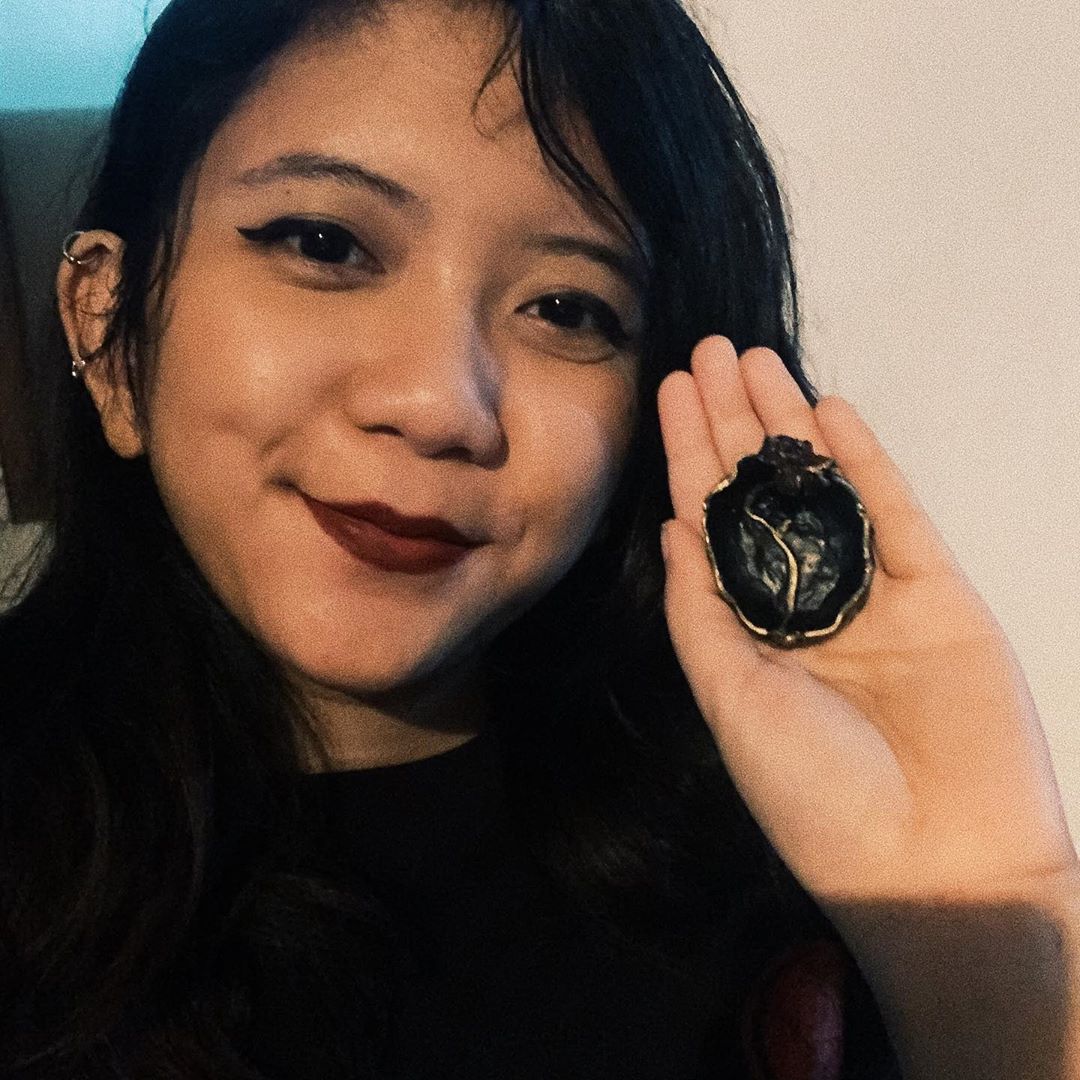
Dea Karina
Image credit: @mage.pots
Unlike Akiko, experimental musician Dea Karina didn’t have business in mind when she started to dabble in creating small decorative items out of clay. In an effort to work through her mental health issues, she wanted to look for a therapeutic activity because meditation just wasn’t working out for her – in fact, it only exacerbated episodes of panic attacks and dissociation.
Dea also wished to find another way to express herself after an unpleasant experience in her music community. To heal from the trauma, she decided to give clay art a go after watching inspiring creators on TikTok. Around the time the pandemic hit, she didn’t have a full-time job, so in addition to trying to find peace through this new hobby, she started thinking about its business potential as well.
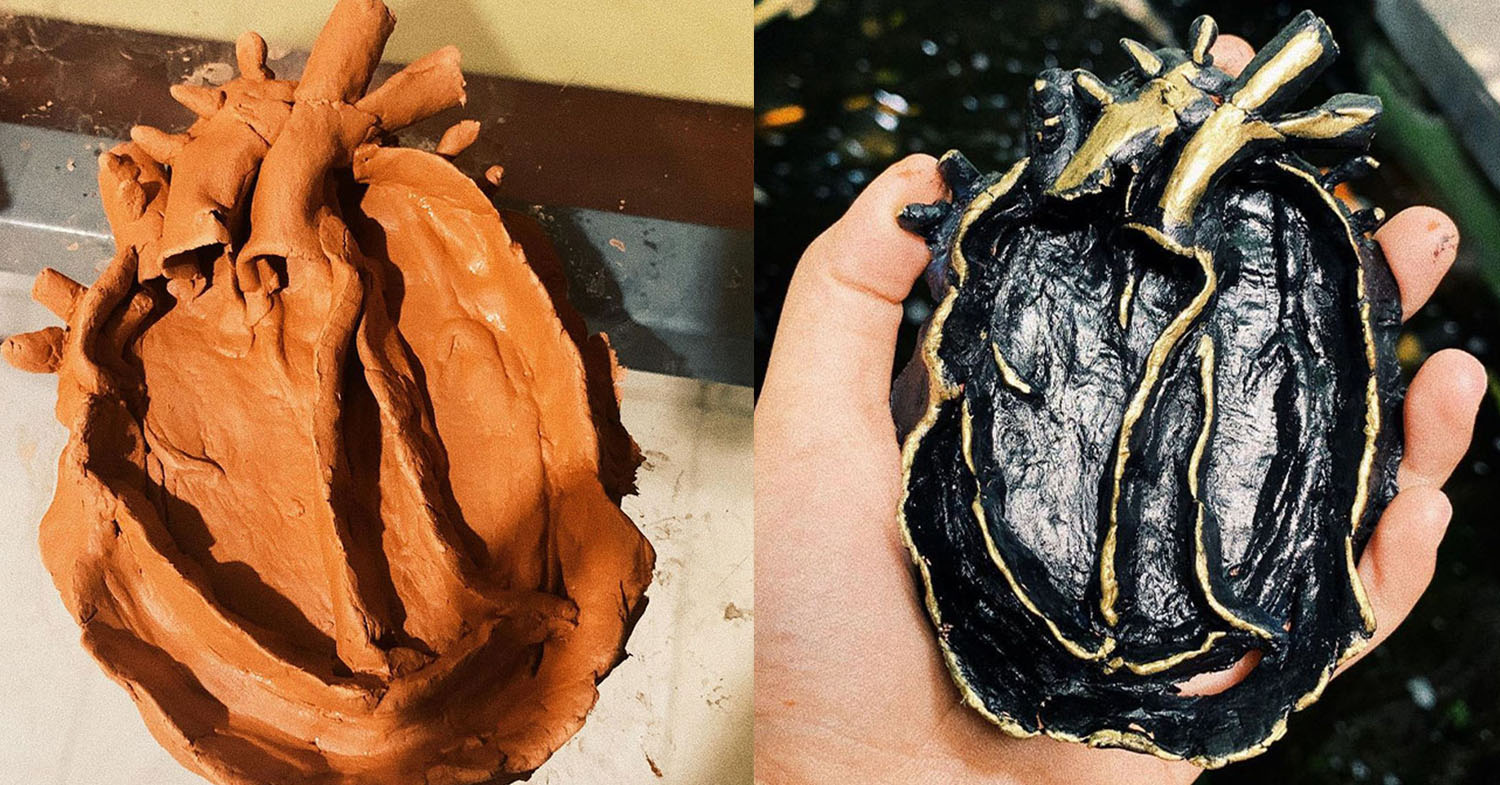
A multipurpose, literally heart-shaped ashtray
Image adapted from: @mage.pots
Even though she had no prior experience in working with clay, she just followed her gut and continued to make uniquely designed ashtrays, pots, and incense holders. Her close friends were extremely supportive, which eventually gave her the courage to start promoting her work through social media. Although she knew not to expect a lot of money out of it, she was confident that her experience in finance could help her build a humble clay goods shop with a DIY spirit called Mage Pots.
About a month after setting up Mage Pots, Dea landed a full-time job that required her to relocate from Yogyakarta to Jakarta. She lamented, “I’ve been struggling a bit since I have a full-time job now…[with] just managing [my] brain juice… because you have to really think and use your creativity and ‘technical expertise.’” Commitment is essential when it comes to juggling a creative pursuit and daily work responsibilities, and it also has a huge effect on consistency.
According to Dea, the COVID-19 pandemic helped her business as digital advertising helped her reach a bigger audience, especially since people are spending more time at home browsing the internet these days. “Everybody’s online and I think that definitely helped getting the [business going through] word of mouth.” But online exposure alone isn’t enough, as the emergence of many small businesses and her own lack of consistency caused by her main work responsibilities also made it easier to lose momentum.
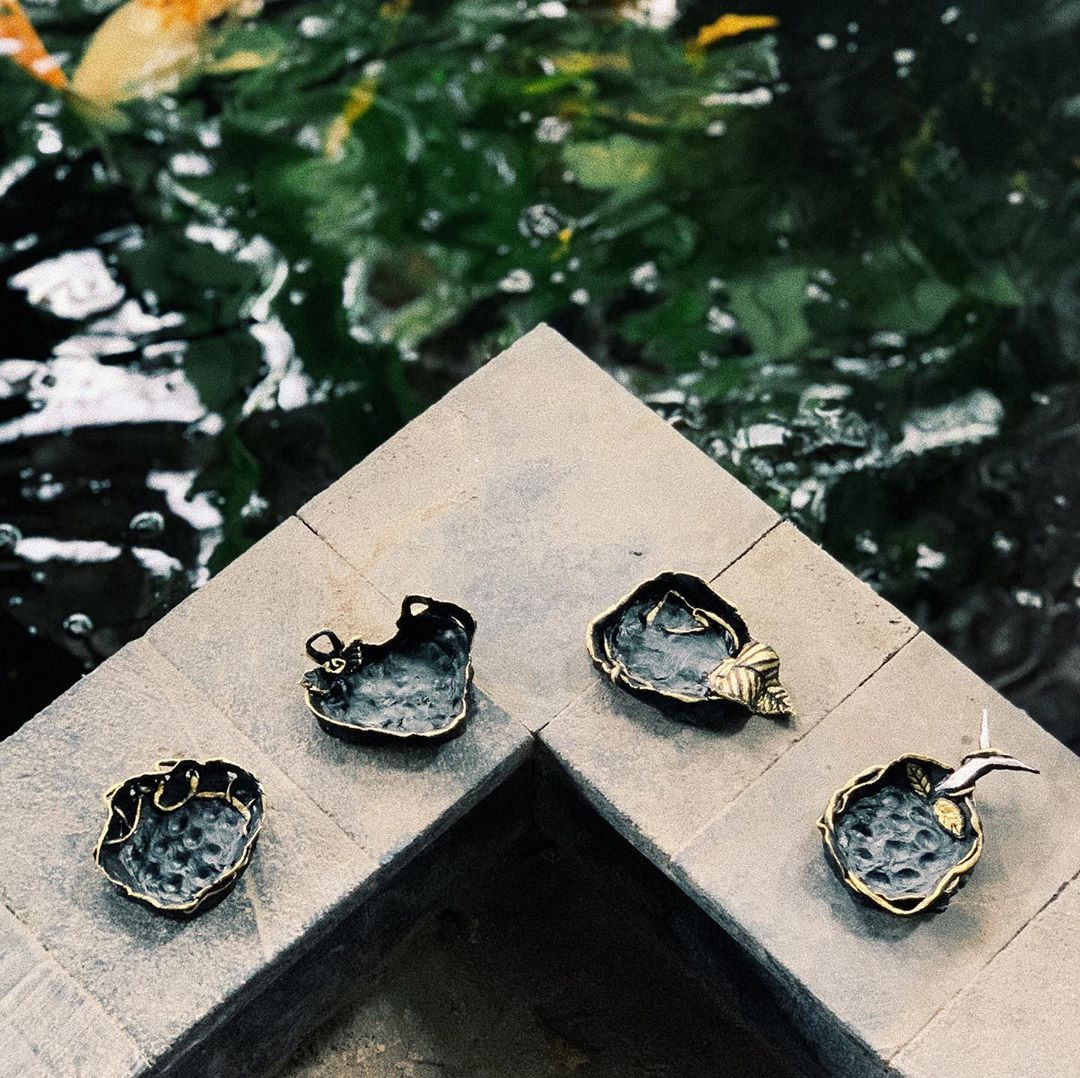
Dea likes the black-gold color combination because she thinks it’s luxurious yet mystical
Image credit: @mage.pots
Dea prioritizes making special items that represent a special connection between the creator and the customer – a term she doesn’t like using because it sounds overly transactional. “It’s definitely an exercise on how I can materialize what I think about a person… like OK, this person I think would appreciate the ashtray that has a snake, for example, or leaves, or etcetera… just interpreting their vibes into something material.” All of this is an incredibly rewarding creative process for Dea.
Mage Pots hasn’t actually been officially launched just yet. Until Dea feels more at ease with her current living and working arrangements, she will concentrate on orders placed by friends. But you can test your luck by dropping her a message on Instagram.
Dea thinks it’s crucial that you manage your time and mental energy wisely, as turning a passion into a commercial pursuit can be difficult to adjust to at first: “The dangerous thing about starting your business from a hobby is that you’re going to be forced to turn your hobby into something that can be sold in the market, and not a lot of [creators] deal well with that at first. So I would advise them to set time aside for hobbies that aren’t going to be capitalized for money. That’s really important.”
Additionally, create a separate bank account just for your business and use your networks to spread the word. Dea noted, however, “But don’t expect to make a profit in the first year. I think I can say you’re definitely going to lose money in the first few months or years.” On a positive note, however, once you’re able to get through that stage, it’ll be a rewarding experience.
Lastly, Dea wishes she had teamed up with someone because working alone can get overwhelming. And if you’re thinking of finding a reliable business partner, make sure it’s someone you can be on the same page with.
Check out Dea’s clay creations on Mage Pots’ Instagram.
3. Ku-dab by Charmila Nurbintoro – comfort fried snacks that remind you of home

Image credit: Charmila Nurbintoro
Dea isn’t the only one who started to build a business in the midst of the pandemic. In the beginning of August, Charmila Nurbintoro decided to start selling homemade comfort snacks such as lumpia (spring rolls) and pastel (chicken puffs).
The idea was sparked by Charmila’s personal interest in food, even though she’s not a professionally trained chef. She wanted to see if she could start selling her household’s specialties – particularly the light bites – through her online snack shop, Ku-dab that offers home-style food.

Ku-dab’s spring rolls
Image credit: Charmila Nurbintoro
Having just entered the food business, Charmila has felt the need to overcome challenges as quickly as possible. One of the most apparent obstacles in starting a business during the pandemic is having to solely rely on online platforms. Marketing the lumpia and pastel at food bazaars, school or office canteens, or cafes and restaurants that could attract buyers more readily is currently out of the question.
Another unexpected issue that Charmila has come across has to do with delivery services. As consumers used to ordering food on GrabFood or Gojek, most of us don’t really think about the possible problems that could occur behind the scenes of these apps – but as Charmila discovered in the very early stages of her business, she had to deal with apps not functioning properly or delivery workers having trouble finding addresses.
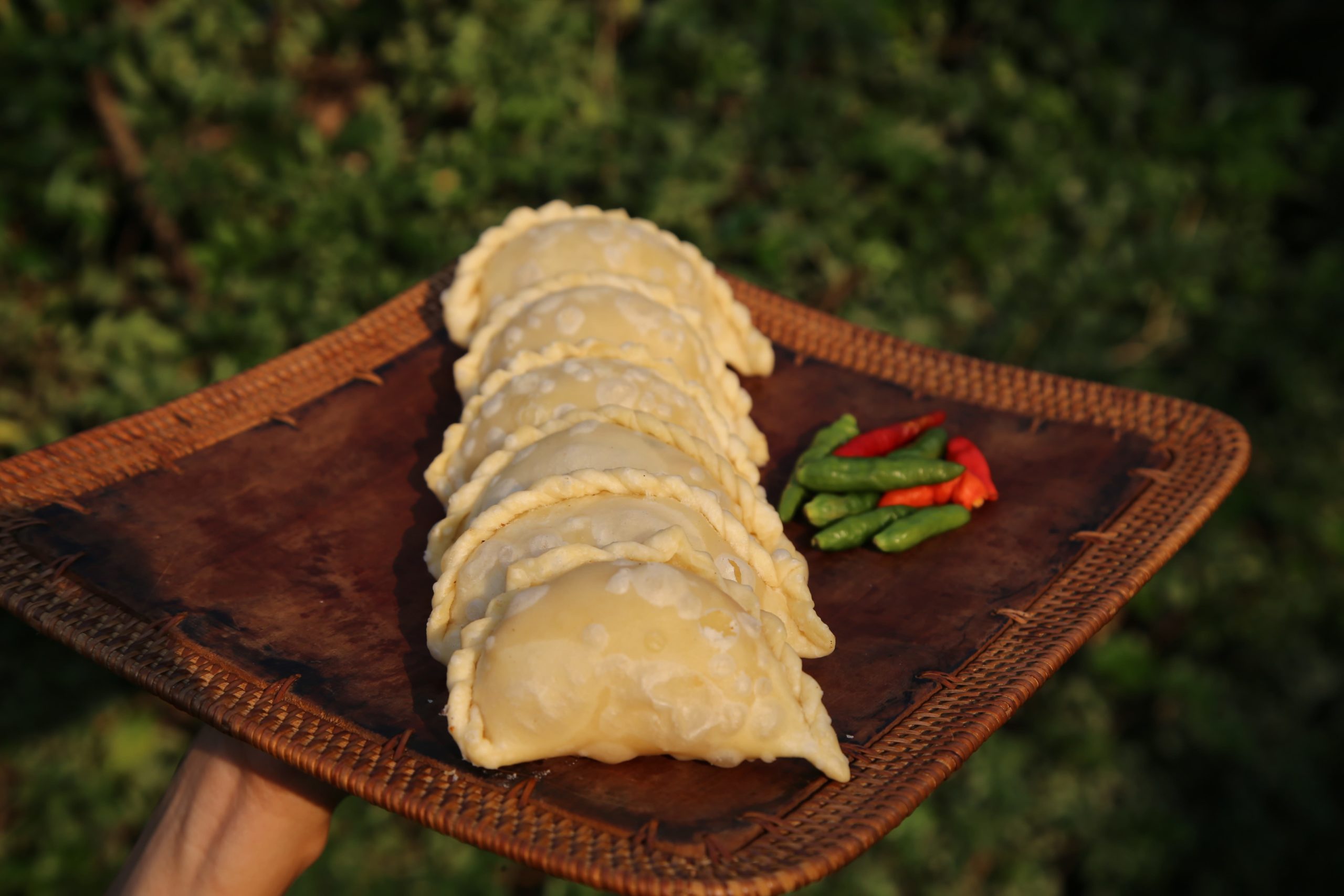
Ku-dab’s curry puffs
Image credit: Charmila Nurbintoro
Regardless of the challenges, Charmila is determined to make improvements. Because there are no offline events that she can take advantage of, she has focused on creating promotional content with personalized messages to share on social media platforms such as Facebook and Instagram. She also keeps her eyes peeled for viral Twitter threads that she can comment on to spread the word about Ku-dab snacks. Even though this method might rub netizens the wrong way, it can be an effective method – and well, desperate times call for desperate measures.
Even though Charlima can’t run her business in an ideal way at the moment, she’s glad that people have responded well to the snacks her family loves.
Charmila thinks that we shouldn’t be afraid to start your own business. “Don’t let the pandemic get in your way, but rather turn it into an opportunity for self-improvement.”
But at the same time, she also reminds us to take it easy. “It’s important to not force yourself.” Home businesses don’t always have to be about making money, as Charmila notes that it’s “also a way of spending time doing productive things.”
One piece of advice that Charmila herself wished she had received is to “prepare a content bank to share on social media websites.” While it’s never too late to start, she notes the difficulties of stocking up shareable content along the way to share on apps such as Instagram, Facebook, Twitter, and of course, TikTok – which currently has high user engagement especially in Indonesia. So be sure to take note.
Check out Ku-dab’s homemade snacks on Instagram.
Tips from women running home businesses on balancing what you love with your work
Akiko, Dea, and Dinda may have been inspired to set up their own home businesses for completely different reasons, but it’s clear that these women running home businesses deeply care about what they have started – even if they still have to work their way around the challenges that pop up every now and then.
Hopefully they’ll be able to nurture their businesses and inspire other women who might have a unique idea or two brewing in their minds.
Also read:
- 3 Jakarta-based independent musicians share their experiences
- 8 Indonesian products by local brands and artists
- 8 dessert home businesses in and around Jakarta
- 8 Jakarta home bakeries
Cover image adapted from: Akiko Nada Atsmara, @mage.pots, and Charmila Nurbintoro
Enjoying The Smart Local Indonesia? Follow us on Facebook, Instagram, and Twitter for more stories like this.
